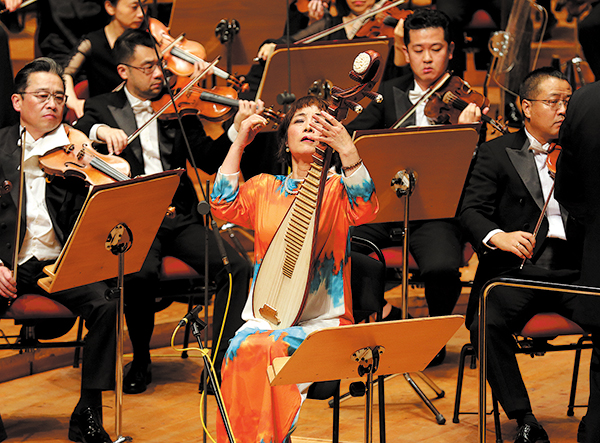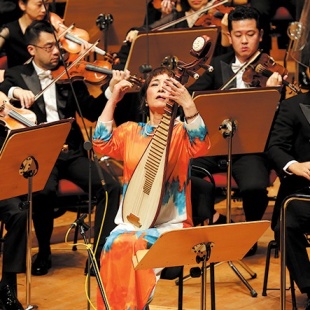Virtuoso plucked to be resident artist
Pipa player kicks off Shanghai Symphony Orchestra's new season in major role, as she continues to promote traditional music to the world, Zhang Kun reports.


The traditional Chinese instrument belongs to a family of plucked string instruments worldwide, Wu says. "It has the vocabulary of Chinese music, such as pingtan, a representative of Jiangnan culture, but back in the Tang Dynasty (618-907), it probably spoke a different Central Asian language. … It is through constant communications and exchanges that the pipa evolved to the way it is now."
A Chinese instrument such as the pipa collaborating with Western instruments, and with the Shanghai orchestra, makes "one of the best symphonies in the world", Wu says. "I think the key challenge is to find balance in the sound. We are still in the process of harmonizing. … It may take several generations of composers and performers to perfect it."
Wu was born in Hangzhou, East China's Zhejiang province, in 1963 and studied at the Central Conservatory of Music in Beijing. She was the first pipa player to receive a master's degree from the school in 1987. She moved to the United States in 1990 and has since embarked on a performance career collaborating with musicians from around the world.
In the past decades, she has recorded and appeared on more than 40 albums, five of which have been nominated for Grammy Awards.
The pipa has become widely known and accepted by the global music scene, with new compositions created specifically for the instrument, Wu found, "and I have made my contribution", she says, beaming. "People may see my accomplishments now, but they don't realize I have quietly worked hard for 30 years."
She suggests that young musicians aspiring for an international career should "embrace different musical elements and cultures with an open heart".
Before her recitals abroad, Wu would often visit local universities, high schools, and primary schools to talk about Chinese music and traditional instruments. "Many people knew nothing about the pipa before stepping into the concert hall," she says. "They would look for familiar sounds. Some would say it sounds like a guitar, an oud, a banjo, or a harp. … And they would go home with smiles on their faces."





































